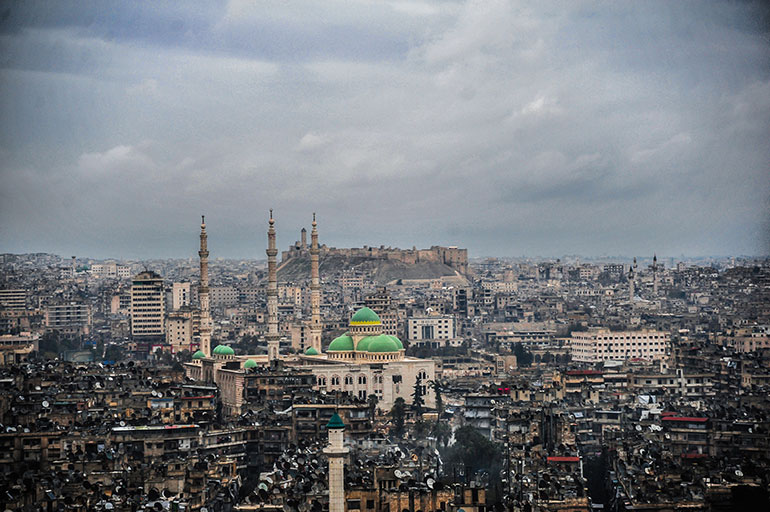
In downtown Damascus in the upscale neighborhood of Abu Ramaneh, this picture highlights the religious diversity of Syria.
Event moved to Canada due to actions of 'populist politicians'
On the verge of having an international conference on religion cancelled due to political turmoil, UBC Professor Francisco Peña stepped in and is bringing the event to Kelowna.
Peña, who teaches in UBCO's department of languages and world literatures, says the Faith, Community and Culture conference will include Jewish, Christian and Islamic perspectives, dating from the ancient period to the present.
"This conference seeks to promote the scholarship of religion from multi-faith perspectives, which is timely as populist politicians across the world use religion to promote political self-interest," says Peña.
The multi-day event, September 9 to 11, is in partnership with the International Council for Middle East Studies (ICMES) an academic think tank in Washington, D.C. The ICMES board of directors consists primarily of Middle East scholars and has a goal to educate people about various aspects of Middle East culture and politics.
"This conference is about religious pluralism in a time of separatism and will focus on human faith in a context when people are weaponizing faith for political gain," Peña adds.
The first Faith, Community and Culture Conference took place in 2016 in Spain when the ICMES collaborated with the Three Cultures of the Mediterranean Foundation. That foundation, based in Spain, promotes dialogue, peace and coexistence among Mediterranean peoples.
Peña explains the 2019 conference was set to take place in Washington, D.C., However, the current restrictions in the United States have made entry visas into the country impossible for some association members including Islamologist Gonzalez Ferrín and Syrian journalist Alaa Ebrahim. Spain, an alternate location, was rejected after the Popular Party won in the regional elections of Andalusia in 2018, restricting activities of the Three Cultures of the Mediterranean Foundation.
"When members of the group witnessed the increased limitations due to the new Congress in Spain, we became determined to host the meeting here," explains Peña. "And for the organizers and participants, this opportunity offered by UBC, is an undoubted oasis of freedom for professorship, research and thought."
The conference is open to the public and people can participate in sessions that include presentations, discussion and debate by distinguished Canadian, American, European and Middle East experts in numerous fields. Taking place at the Four Points Sheraton, 5505 Airport Way, the event is supported by the Faculty of Creative and Critical Studies, the Office of the Provost and Vice-President Academic.
"The opportunity for UBC to host researchers who specialize in the study of religion and the Middle East could not be missed," says Peña. "Hosting this conference also demonstrates a sense of university freedom that unfortunately is no longer a general trend in societies that today inhabit much of what we call the developed world."






